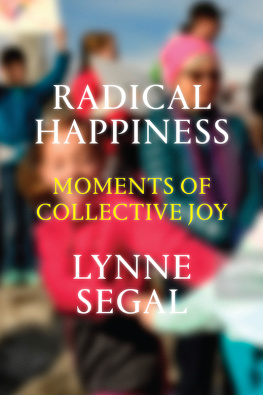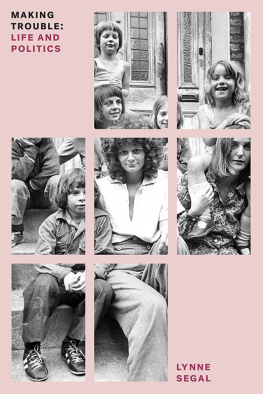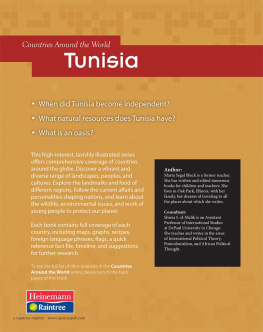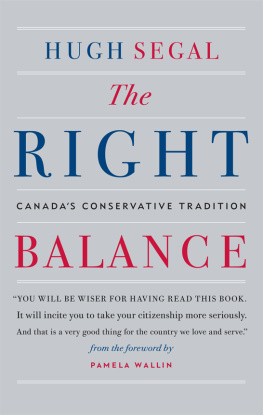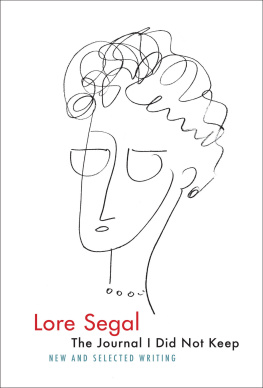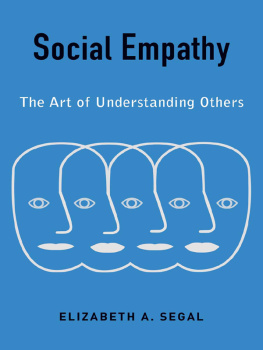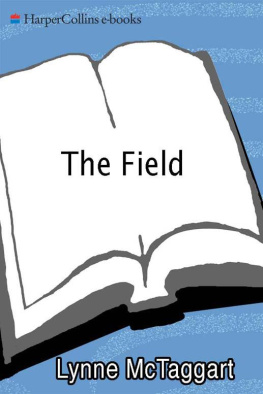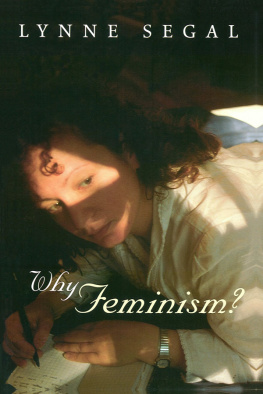Lynne Segal - Radical Happiness
Here you can read online Lynne Segal - Radical Happiness full text of the book (entire story) in english for free. Download pdf and epub, get meaning, cover and reviews about this ebook. year: 2017, publisher: Verso Books, genre: Romance novel. Description of the work, (preface) as well as reviews are available. Best literature library LitArk.com created for fans of good reading and offers a wide selection of genres:
Romance novel
Science fiction
Adventure
Detective
Science
History
Home and family
Prose
Art
Politics
Computer
Non-fiction
Religion
Business
Children
Humor
Choose a favorite category and find really read worthwhile books. Enjoy immersion in the world of imagination, feel the emotions of the characters or learn something new for yourself, make an fascinating discovery.
- Book:Radical Happiness
- Author:
- Publisher:Verso Books
- Genre:
- Year:2017
- Rating:3 / 5
- Favourites:Add to favourites
- Your mark:
- 60
- 1
- 2
- 3
- 4
- 5
Radical Happiness: summary, description and annotation
We offer to read an annotation, description, summary or preface (depends on what the author of the book "Radical Happiness" wrote himself). If you haven't found the necessary information about the book — write in the comments, we will try to find it.
Radical Happiness — read online for free the complete book (whole text) full work
Below is the text of the book, divided by pages. System saving the place of the last page read, allows you to conveniently read the book "Radical Happiness" online for free, without having to search again every time where you left off. Put a bookmark, and you can go to the page where you finished reading at any time.
Font size:
Interval:
Bookmark:

HAPPINESS
LYNNE SEGAL

For Agnes, Andreas, amonn and Zim
First published by Verso 2017
Lynne Segal 2017
All rights reserved
The moral rights of the author have been asserted
1 3 5 7 9 10 8 6 4 2
Verso
UK: 6 Meard Street, London W1F 0EG
US: 20 Jay Street, Suite 1010, Brooklyn, NY 11201
versobooks.com
Verso is the imprint of New Left Books
ISBN-13: 978-1-78663-154-1
ISBN-13: 978-1-78663-744-4 (EXPORT)
ISBN-13: 978-1-78663-157-2 (US EBK)
ISBN-13: 978-1-78663-156-5 (UK EBK)
British Library Cataloguing in Publication Data
A catalogue record for this book is available from the British Library
Library of Congress Cataloging-in-Publication Data
A catalog record for this book is available from the Library of Congress
Typeset in in Fournier by MJ & N Gavan, Truro, Cornwall
Printed in the UK by CPI Mackays
He who binds to himself a joy
Does the winged life destroy;
He who kisses the joy as it flies
Lives in eternitys sunrise.
William Blake, Eternity
Not at the eleventh hour, but with this book in production, I had to recall its galleys to meddle with my preface. All of a sudden, I had just experienced a night of collective joy with my friends, watching the election results from 8 June 2017. We listened with mounting glee as the Labour Party massively increased its vote in so many areas across Britain, winning seats that had been unwinnable for decades, even centuries, the largest swing since 1945. Despite all the effort we had put into the campaign, it was the surprise of this outcome that was so thrilling. Almost every mainstream newspaper had written off the Labour Party as unelectable under the leadership of Jeremy Corbyn, who was vilified relentlessly in its most popular outlets, indeed who had been dismissed by friends and enemies alike as an impossible leader. In the end, the party did not win an outright majority, but jubilation lingered, knowing we had witnessed a momentous swing against the seemingly unstoppable policies of austerity and privitization that had been deepening inequality and devastating so many over the last thirty years and more. Instead of the predicted death-knell of social democracy, there was suddenly renewed energy and hope that something different might emerge in the future. The alignment of this moment of hope with my objectives in writing Radical Happiness seemed almost uncanny.
Nevertheless, writing a book on happiness is surely one of the most foolish hostages to fortune I have ever given. Who am I to lay claim to any expertise on the matter? Like many of us, I am often preoccupied by the miseries of the world, including my own familiarity with loneliness, regret and thwarted desire. Certainly, happy is not the box I would readily tick if asked to scale my present feelings, despite having been personally fortunate in so many ways. But then, that is not my reason for writing this book.
Preserving what personal pleasures and comforts I have may guide much of my waking time, but like all the people I know, I am in countless ways immersed in public life. Public awareness easily blurs into private emotions, leaving us raging against the ubiquity of injustice all the more bitterly when we are feeling desolate. The older we become, the more obvious it should be that there is a public as well as a private aspect to our feelings. Above all, as I explore throughout this book, feelings of happiness are entwined with our ties to the world, mostly to other people, but also to all that we are able to do or are restricted from doing. This is just one of the reasons why feminists have said that the personal is political, although we used to be clear that the political can never be reduced to the personal.
As a feminist, I have always taken the pleasures and joy of others seriously, as well as the misery and fear that are increasingly evident, both close to home and across the globe. Thus, the sexual politics I have written about for over forty years begins and ends with reflections on personal agency and pleasure, while confronting the many, sometimes accumulating, impediments Nevertheless, I do not understand people who feel able to separate their own wellbeing entirely from that of others, or from public life more generally. Acknowledging the sadness of others, doing work we find interesting, sharing friendship and love through good times and bad while facing the tribulations life hurls at us, with help when we need it, seems to me the essence of pursuing any good life. As the world becomes an ever lonelier place, it is sustaining relationships, in whatever form they take, which must become ever more important. An act of defiance, even.
Yet this is exactly what is missing from the debates on the politics of happiness. Ridicule more than rage was no doubt most appropriate when George H. W. Bush made Bobby McFerrins one-hit wonder, Dont Worry, Be Happy, the official campaign song of his (sadly successful) presidential bid in 1988, and not only because he did so without McFerrins endorsement or permission. This seemed to herald a wind of change globally. Ten years later, Tony Blairs New Labour regime promoted the use of measures of wellbeing and happiness to steer government policy. Successive governments have continued this policy. In 2010, David Cameron launched his own, still ongoing, well-being project, dedicating 2 million a year to data collection, with one of the key questions in its research being: How happy did you feel yesterday?
The happiness agenda has little time for our being rather unsure about quite what we are feeling when we are getting on with our daily tasks. It is a project that insists on our accepting or rejecting simple descriptions, which are unlikely to capture any uncertainties about our thoughts, feelings and actions were we to put them to deeper probing.
Interestingly, the more intense our emotions, the more complex they may seem to us. In all the chapters to come, there will be more than enough to illustrate that what gives us greatest happiness one moment, such as the laughter of those we care about, brings greatest pain the next, when we feel their hurt and all the more so when we have caused it. In Radical Happiness, therefore, I examine why this official interest in happiness is such a dubious development. The eager promotion and quantification of our contentment goes along with the disavowal of the actual presence of its antithesis: the precipitously rising rates of anxiety and depression all around us, and the accompanying pathologizing of personal misery.
It is therefore the multifarious meanings of the notion of happiness itself that I want to explore in my opening chapter, with all its challenges and ambiguities. Happiness is usually seen today as a distinct and measurable state of mind. However, this was not always so. For a long time it was understood as the outcome of certain types of worthwhile actions, pursued for their own sake. It is clear that this definition encompasses a shared and public life.
Since our own survival and identity depend upon the existence of others and the communication between us, neither our emotions nor our deeds are ever purely private affairs. What we say and do emerges from how we try to make sense of and give significance to the nebulous muddle of our experience and exertions. Sometimes, though, meaning may fail to cohere at all, as when the degree of trauma crushes any manageable response to it. Moreover, happiness itself is something we usually report in retrospect, not as and when we feel it even if we are singing along to the perverse ironies of Pharrell Williamss global hit, Happy: Clap along if you feel like happiness is the truth. For anything we call happiness to endure and be cherished, it needs to be recognized and shared with others, always hovering somewhere between the strictly personal and the potentially public. As well as sharing these individual pleasures, we also need to claim the spaces and places out there in the world where it becomes easier to escape our own personal dilemmas, enjoying collective moments of pleasure.
Font size:
Interval:
Bookmark:
Similar books «Radical Happiness»
Look at similar books to Radical Happiness. We have selected literature similar in name and meaning in the hope of providing readers with more options to find new, interesting, not yet read works.
Discussion, reviews of the book Radical Happiness and just readers' own opinions. Leave your comments, write what you think about the work, its meaning or the main characters. Specify what exactly you liked and what you didn't like, and why you think so.

